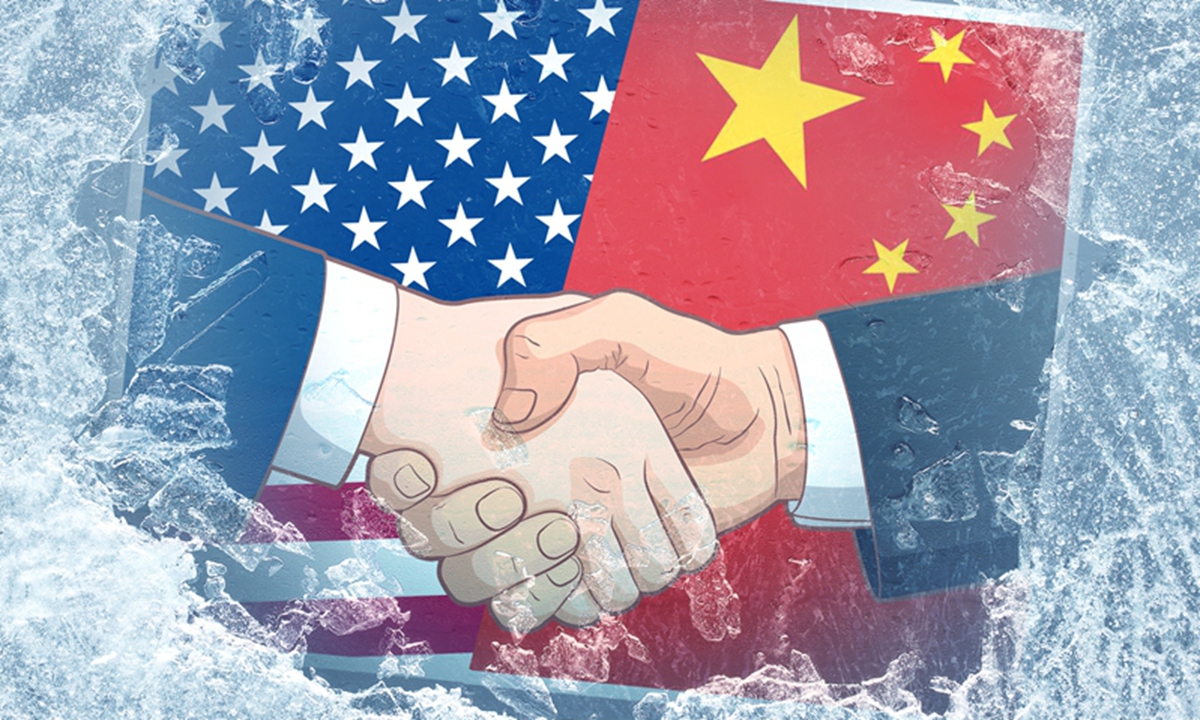Next US govt needs to value trade relations with China
Source: Global Times Published: 2020/11/4 21:03:40

Photo: Global Times
American businesses' enthusiasm for the third China International Import Expo (CIIE) is undimmed by political tensions, even though the US and China are likely to face more uncertainties over the next four years.Statistics showed that nearly 200 US companies would participate to the event, with quite a lot of third-time participants, such as GE, Pfizer, Qualcomm and Honeywell. Their unrelenting passion for the CIIE is an evidence of the importance US businesses attach to the Chinese market, which may be the main reason why we still need to maintain confidence in US-China trade and economic cooperation during the next administration.
Based on the voting results as of press time, Americans appear to be even more concerned about the economy than the pandemic. The US economy took a heavy hit from the global pandemic and is still struggling to climb out of the deep hole. US voters' worries about the current economic difficulties and their eagerness for its recovery are on full display in this election.
Against such a backdrop, the importance of the Chinese market to American companies and the US economy is self-evident. Chinese consumption is one of the key things they need to lift the economy out of the current trough, especially when China is the first major economy to return to growth since the pandemic.
The escalating US-China confrontation over the past months has put US businesses - in particular, American technology giants that rely heavily on the Chinese market - in an awkward position.
On the one hand, they cannot disobey the orders of the US government; while on the other hand, they are not willing to take incur heavy losses by losing market shares in China.
In this sense, it will be crucial for these US businesses how the next US administration will tackle US-China economic and trade relations in the next four years. Whether the US will continue to push for a decoupling with China or their bilateral trade relationship will warm up again will not only affect the two economies, but also the pattern of the industrial chains around the world.
While it is true that the US-China trade relationship has encountered continuous setbacks such as trade war and tech war, it is worth noting that the US election-related factors have played a major part in this process.
Historically speaking, the relationship between China and the US usually goes through turbulent times before the election, and a period of easing tension in bilateral trade often follows the election. It will also be a critical test for the two countries as to how to grasp such an opportunity period to maintain an overall stability and avoid uncertainty in terms of both international politics and trade.
Of course, it is undeniable that such confrontation between the US and China has not been seen in decades, there is also concern over the possibility that the trade relationship between the world's two largest economies could slide into something even worse and become more unpredictable. So, one of the top priorities for the next administration should be on rebuilding confidence in US-China economic and trade ties.
Posted in: GT VOICE